Have you ever wondered what drives the behavior of those adorable golden retriever puppies? From their playful antics to their loving nature, there’s no denying that golden retrievers hold a special place in our hearts. But what really goes on in their furry little heads? How can we ensure we’re meeting their needs and guiding them to become well-behaved adults?
In this article, we will delve into the fascinating world of golden retriever puppy behavior. We’ll explore the different developmental stages, including the Angel Phase and the Teenage Rebellion Phase, and provide expert tips on training and care. So, get ready to unlock the secrets behind those wagging tails and learn how to foster a strong bond with your golden retriever companion.
Key Takeaways:
- Understanding golden retriever puppy behavior is crucial for effective training and care.
- The Angel Phase (2-6 months) is a critical period for training and socialization.
- Growth milestones and proper communication are essential in the development of golden retriever puppies.
- Establishing routines, boundaries, and expectations is key to a well-behaved golden retriever.
- Proper grooming and care are essential for your golden retriever’s well-being.
The Angel Phase (2-6 months)
The Angel Phase is a crucial period in the development of golden retriever puppies, spanning from 2 to 6 months of age. During this stage, it is imperative to focus on puppy training and socialization to lay a strong foundation for their future behavior.
Golden retriever puppies are known for their short attention spans and high energy levels. To keep them engaged and prevent any destructive behavior, providing them with stimulating activities is essential. This can include interactive toys, puzzle games, and regular playtime to burn off their excess energy.
Teething is a common occurrence during the Angel Phase, which can lead to mouthiness in puppies. It is important to understand your puppy’s communication cues and provide appropriate outlets for their chewing needs. Offering puppy-safe chew toys and redirecting their attention away from inappropriate chewing objects can help them through this phase.
Proper socialization is also crucial during the Angel Phase. Introduce your puppy to different environments, people, and animals in a controlled and positive manner. This will help them develop confidence, reduce fear or aggression towards new experiences, and improve their overall behavior as they grow older.
Remember, consistency, positive reinforcement, and patience are key during the Angel Phase. By focusing on training, providing engaging activities, and socializing your golden retriever puppy, you’ll set them up for a lifetime of good behavior and companionship.
Growth Milestones and Communication
In the Angel Phase of golden retriever puppy behavior, various growth milestones occur as these adorable pups continue to develop. During this phase, it is important to cater to their needs by providing activities that address their physical, social, and mental requirements.
While their attention spans are still limited, engaging them in suitable exercises and interactions will help them thrive. Whether it’s playing fetch in the backyard or having supervised playdates with other friendly dogs, these activities are essential for their overall well-being.
However, communication also plays a crucial role during this phase. Golden retriever puppies tend to vocalize through whining, growling, and barking to express their needs or emotions. By understanding and interpreting their different types of vocalization, you can better communicate with them and address their concerns.
This phase also includes a fear stage, during which puppies may display anxiety towards certain stimuli. It is important to provide them with proper socialization and expose them to different situations gradually, helping them develop coping skills and build confidence.
Communication with Golden Retriever Puppies
- Whining: indicates a need for attention, hunger, or discomfort. Respond appropriately, addressing their needs and providing comfort.
- Growling: a warning sign that the puppy feels threatened or uncomfortable. It’s crucial to assess the situation and ensure a safe environment for them.
- Barking: can signify various things, such as excitement, fear, or alertness. Understand the context and respond accordingly, providing reassurance or redirecting their attention, if necessary.
By actively engaging with your golden retriever puppy and understanding their communication cues, you can strengthen the bond between you and establish a foundation of trust and understanding during this critical phase of their development.
Establishing Routines and Expectations
During the Angel Phase, it is crucial to establish routines and expectations to create a stable environment for your golden retriever puppy. Consistency and structure are key elements in their training and development. By providing clear rules, boundaries, and expectations, you set the foundation for good behavior and a harmonious relationship.
Meeting Your Puppy’s Needs:
- Intellectual Needs: Engage your puppy’s mind with interactive toys, puzzle games, and obedience training. This will keep them mentally stimulated and prevent boredom.
- Physical Needs: Provide daily exercise to burn off their abundant energy. Regular walks, playtime, and activities like fetch or agility training are ideal for keeping them fit and happy.
- Social Needs: Socialize your puppy with different people, animals, and environments to help them develop into a confident and well-behaved dog. Puppy playdates, obedience classes, and visits to dog-friendly places are great opportunities for socialization.
Finding Their Purpose:
Golden retrievers thrive when they have a sense of purpose or job to fulfill. They are intelligent, eager to please, and enjoy working alongside their owners. Consider activities like obedience trials, search and rescue training, therapy dog work, or participating in dog sports like agility or dock diving. These activities not only provide mental stimulation but also strengthen the bond between you and your golden retriever.
Creating a Daily Schedule
Creating a daily schedule helps establish routines and predictability for your puppy. They thrive on consistency and feel secure when they know what to expect. Here is an example of a typical daily schedule:
| Time | Activity |
|---|---|
| 7:00 AM | Wake up and outdoor bathroom break |
| 7:15 AM | Feeding time |
| 8:00 AM | Short walk for exercise |
| 9:00 AM | Training session or mental stimulation activity |
| 11:00 AM | Playtime or interaction with other dogs |
| 12:00 PM | Bathroom break |
| 12:15 PM | Noon mealtime |
| 1:00 PM | Quiet rest time |
| 3:00 PM | Engaging activity, such as a puzzle toy |
| 4:00 PM | Outdoor playtime or training |
| 6:00 PM | Bathroom break |
| 6:15 PM | Evening mealtime |
| 7:00 PM | Leisurely walk or bonding time |
| 8:00 PM | Wind-down time with chew toys or calm activities |
| 9:00 PM | Last bathroom break and bedtime |
Remember, every puppy is unique, and their schedule may vary depending on their age, energy level, and individual needs. Be flexible and adjust the schedule according to your golden retriever’s preferences and behavior.
Grooming and Care
Proper grooming and care are essential for the well-being of your golden retriever puppy. By maintaining a regular grooming routine, you can ensure that your furry friend remains healthy, happy, and looking their best. Here are some important aspects of grooming and care to consider:
Nail Trimming
Keeping your golden retriever puppy’s nails trimmed is important for their comfort and overall paw health. Long nails can cause discomfort and lead to difficulties in walking or running. Regular nail trimming will help prevent any potential injuries or nail-related issues.
Brushing
Regular brushing is crucial for your golden retriever puppy, as it helps to keep their coat clean and free from tangles or mats. Additionally, brushing helps to distribute the natural oils in their fur, keeping it healthy and shiny. It also allows you to check for any skin issues or abnormalities.
Dental Care
Caring for your golden retriever puppy’s teeth is vital to their overall health. Regular tooth brushing and dental check-ups can prevent dental diseases and keep their breath fresh. You can use dog-friendly toothpaste and a soft-bristle toothbrush specifically designed for dogs.
Handling and Trust
From a young age, it’s important to handle all parts of your golden retriever puppy’s body, including their ears, mouth, feet, and tail. By doing so, you establish trust and familiarity, making grooming sessions and veterinary visits less stressful for both of you.
Bathing
Bathing your golden retriever puppy should be done as needed, depending on their activity level and how dirty or smelly they get. Use a dog-specific shampoo and thoroughly rinse their coat to avoid any irritation or skin issues. Introduce bathing gradually to acclimate your puppy to the experience.
Professional Assistance
If you’re uncomfortable or uncertain about any aspect of grooming, consider seeking professional assistance. Professional groomers have the necessary expertise and tools to handle grooming tasks effectively and safely.
Remember, grooming is not just about maintaining your golden retriever puppy’s physical appearance. It’s also an essential part of their overall care and well-being. By incorporating regular grooming into their routine, you can help your precious puppy look and feel their best.
| Grooming Tips | Frequency |
|---|---|
| Nail trimming | Every 4-6 weeks |
| Brushing | Several times a week, daily during shedding season |
| Dental care | Daily brushing, regular dental check-ups |
| Bathing | As needed, typically every 4-6 weeks |
The Teenage Rebellion Phase (6-18 Months)
The Teenage Rebellion Phase is a challenging period that typically occurs between 6 and 18 months of age. During this phase, your golden retriever puppy is maturing both physically and socially. They may become more independent, test boundaries, and display behaviors associated with adolescence. It is crucial to continue training during this phase and reinforce the foundation established in the Angel Phase. Physical exercise, mental stimulation, and finding appropriate outlets for their energy are vital to channel their behavior in a positive direction.
As your golden retriever enters the Teenage Rebellion Phase, they may demonstrate behaviors that test your patience. They may ignore commands they previously obeyed, become more stubborn or willful, and exhibit selective hearing. This is a normal part of their development process as they establish their independence and determine their place in the family pack.
Challenges in Teenage Rebellion Phase
During the Teenage Rebellion Phase, some common behavioral challenges may arise:
- Rebellious behavior: Your golden retriever puppy may push boundaries and test your authority. They may try to assert themselves as the leader of the pack.
- Inconsistency: Since your puppy is testing boundaries, they may exhibit inconsistent behavior. This can be frustrating, but it’s important to remain calm and consistent in enforcing rules and training.
- Energy bursts: Your golden retriever may experience sudden bursts of energy, leading to hyperactivity or zoomies. Providing appropriate outlets for their energy, such as long walks or engaging play sessions, can help redirect their behavior.
- Socialization challenges: Some golden retrievers may display fear or aggression towards unfamiliar people or animals during this phase. Proper socialization and positive exposure to new experiences can help alleviate these challenges.
Training Tips for the Teenage Rebellion Phase
To navigate the Teenage Rebellion Phase successfully, consider the following training tips:
- Consistency: Maintain a consistent and clear set of rules and expectations for your golden retriever. Reinforce positive behaviors with rewards and redirect undesirable behaviors with gentle corrections.
- Positive reinforcement: Use positive reinforcement techniques like treats, praise, and play to reward good behavior and motivate your golden retriever during training sessions.
- Continued socialization: Continue exposing your golden retriever to various people, animals, and environments to ensure they develop into well-rounded and confident adults. Obedience classes or group training can also aid in their socialization process.
- Structured exercise: Provide your golden retriever with regular exercise routines that include both physical and mental stimulation. This helps burn off excess energy and keeps their minds engaged.
Remember, the Teenage Rebellion Phase is temporary, and with consistent training, patience, and understanding, your golden retriever will mature into a well-behaved and delightful companion.
| Common Challenges during Teenage Rebellion Phase | Training Tips |
|---|---|
| Rebellious behavior | Maintain consistency and authority in training |
| Inconsistency | Remain calm and consistent with rules and expectations |
| Energy bursts | Provide outlets for energy and engage in regular exercise |
| Socialization challenges | Continued socialization and exposure to new experiences |
Managing Behavioral Challenges
The Teenage Rebellion Phase can come with its fair share of behavioral challenges. As golden retriever puppies transition into adolescence, they may exhibit certain behavior problems that require attention and proper guidance. These issues include jumping on people, engaging in destructive behavior, mouthing, and pulling on the leash.
Addressing and modifying these behaviors is crucial for a well-behaved and happy golden retriever. Training, exercise, and positive reinforcement techniques play a significant role in shaping their behavior and teaching them appropriate alternatives. Consistency and patience are key when working with your teenage golden retriever.
Jumping on People
Jumping on people is a common behavior problem that golden retrievers may display when excited or seeking attention. It’s essential to teach them an alternative behavior, such as sitting, to greet people. This can be achieved through consistent training and reinforcement. Ignoring the jumping behavior and rewarding your golden retriever when they remain calm can help discourage this habit.
Destructive Behavior
Destructive behavior, such as chewing furniture or shoes, can be a result of boredom, excess energy, or anxiety. Providing appropriate outlets for exercise and mental stimulation is crucial during the teenage phase. Interactive toys, puzzle feeders, and engaging activities can help redirect their energy and prevent destructive behavior. Additionally, crate training can be beneficial when you’re unable to supervise your golden retriever.
Mouthing and Nipping
Mouthing and nipping are natural behaviors for puppies during teething. However, it’s important to discourage this behavior early on to prevent it from becoming a habit. Redirecting their attention to appropriate chew toys and teaching them bite inhibition through positive reinforcement can help modify mouthing behavior.
Pulling on the Leash
During walks, some golden retrievers may develop a habit of pulling on the leash, which can make walks less enjoyable. Training your golden retriever to walk calmly by your side requires consistent leash training. Using positive reinforcement techniques, such as rewarding them for walking without pulling and redirecting their focus with treats or toys, can help address this challenge.
If you’re struggling to manage behavioral challenges with your golden retriever during the Teenage Rebellion Phase, seeking professional advice from a certified dog trainer or behaviorist can provide personalized guidance and support. They can assist in developing effective training plans and techniques tailored to your golden retriever’s specific needs.
| Behavior Problem | Modification Techniques |
|---|---|
| Jumping on People | – Teach alternative behavior (sitting) – Ignore jumping and reward calm behavior |
| Destructive Behavior | – Provide proper exercise and mental stimulation – Use interactive toys and puzzle feeders – Consider crate training |
| Mouthing and Nipping | – Redirect attention to chew toys – Teach bite inhibition – Use positive reinforcement |
| Pulling on the Leash | – Consistent leash training – Reward walking without pulling – Redirect focus with treats or toys |
Signs of Maturity Phase (18-24 Months)
During the Maturity Phase, which typically occurs between 18 and 24 months of age, your golden retriever puppy begins to reach both physical and emotional maturity. By this stage, the foundation of their training should be well-established, allowing you to shift your focus towards advanced obedience skills and engaging activities. It is crucial to continue providing them with the necessary mental and physical stimulation to keep them healthy and happy.
At this point, your golden retriever puppy should have completed most of their physical growth, although males may take slightly longer to fully mature. As they grow older, it becomes essential to pay attention to their weight, exercise levels, and mental stimulation to prevent any health issues from arising.
To ensure your golden retriever’s ongoing development and well-being, consider incorporating new challenges and training exercises into their routine. Engaging their minds with puzzles and interactive toys can help keep their cognitive abilities sharp. Advanced obedience training can further enhance their skills and strengthen the bond between you and your furry friend.
Remember:
Training and mental stimulation are lifelong endeavors. As your golden retriever matures, their ability to learn and adapt remains. It’s an ongoing process that continues to strengthen the bond between you and your loyal companion.
Regular exercise remains crucial during the maturity phase, as it helps keep your golden retriever physically fit and mentally stimulated. Daily walks, playtime, and exploring new environments can provide the necessary outlets for their energy and curiosity. Incorporating activities that align with their instincts, such as retrieving or swimming, can also contribute to their overall well-being.
Lastly, maintaining routine veterinary check-ups, a balanced diet, and proper grooming practices are essential to keep your golden retriever healthy and thriving in their maturity phase. Regular veterinary visits allow for early detection and prevention of any health issues, while a nutritious diet and proper grooming routine contribute to their overall well-being.
| Activities for a Mature Golden Retriever | Benefits |
|---|---|
| Advanced obedience training | Enhances their skills and strengthens the bond with their owner |
| Interactive toys and mental puzzles | Provides mental stimulation and keeps their cognitive abilities sharp |
| Engaging in instinctual activities (e.g., retrieving, swimming) | Allows them to use their natural strengths and instincts |
| Daily walks, playtime, and exploration | Ensures they receive regular exercise and outlets for their energy |
Continuing Care and Well-Being
As your golden retriever transitions into adulthood, it is important to continue providing them with ongoing care to ensure their well-being. Mature adult golden retrievers thrive on routines and consistency, which helps them feel secure and content. Here are some key areas to focus on:
Physical and Mental Stimulation
Regular exercise is crucial for keeping your golden retriever physically and mentally stimulated. Daily walks, playtime, and interactive toys can help burn off their energy and keep them engaged. Additionally, consider incorporating mental challenges such as puzzle toys or obedience training to keep their minds sharp.
Social Interaction
Golden retrievers are social animals and enjoy the company of both humans and other dogs. Regular social interaction is important to prevent loneliness and ensure their social development. Arrange playdates or visits to the dog park, and engage in activities that involve human interaction, such as obedience classes or therapy dog training.
Regular Health Care
Just like humans, golden retrievers require regular health check-ups to maintain their well-being. Schedule annual veterinary appointments for vaccinations, dental cleanings, and overall health assessments. Pay attention to any changes in behavior, such as increased reactivity or fears, as these can be signs of underlying health issues.
“Regular exercise and social interaction are vital for the ongoing care and well-being of your golden retriever.”
Observing your golden retriever closely will allow you to detect any potential problems early on. This includes monitoring their eating habits, energy levels, and overall behavior. If you notice any concerning changes, consult with your veterinarian for further guidance and support.
By providing continued care, physical and mental stimulation, and regular health check-ups, you can ensure your golden retriever enjoys a happy and fulfilling life.
Ongoing Care Checklist
| Aspect | Key Actions |
|---|---|
| Physical Exercise | Engage in daily walks, playtime, and interactive toys to keep your golden retriever active and healthy. |
| Mental Stimulation | Provide mental challenges through puzzle toys, obedience training, or interactive games to keep your golden retriever’s mind engaged. |
| Social Interaction | Arrange playdates, visits to the dog park, or engage in activities that involve human interaction to ensure your golden retriever’s social development. |
| Regular Health Care | Schedule annual veterinary appointments for vaccinations, dental cleanings, and overall health assessments. |
| Behavior Observation | Monitor changes in behavior, such as increased reactivity or fears, and consult with your veterinarian if any concerns arise. |
Conclusion
Understanding golden retriever puppy behavior is the key to a successful and fulfilling ownership experience. Whether you’re navigating the energetic Angel Phase or enjoying the companionship of a mature golden retriever, each stage brings its own set of challenges and joys. By providing proper training, care, and addressing their physical and mental needs, you can establish a strong bond with your furry friend.
Throughout your golden retriever’s journey, remember to approach their behavior challenges with patience, consistency, and love. Implementing behavior tips and techniques learned along the way will ensure they grow into well-behaved and happy companions. From socialization and training in the early stages to promoting continued care and well-being throughout adulthood, your dedication will shape their behavior and overall happiness.
Golden retriever ownership is a rewarding experience that requires commitment and understanding. By investing time and effort into their upbringing, you can create a harmonious relationship with your golden retriever. Embrace the journey together, celebrate small victories, and cherish the unconditional love and loyalty they offer. With your guidance, your golden retriever will thrive and bring joy to your life for years to come.
FAQ
What is the Angel Phase for golden retriever puppies?
The Angel Phase is the period from 2 to 6 months of age for golden retriever puppies. It is a crucial time to start training and socialization. During this phase, puppies have short attention spans and high energy levels, so engaging activities are necessary to burn off their energy. This phase is also characterized by teething, which may lead to mouthiness. Understanding your puppy’s communication cues and providing appropriate outlets for their chewing needs is essential.
What are the growth milestones and communication cues during the Angel Phase?
In the Angel Phase, golden retriever puppies experience various growth milestones. Their attention spans are still limited, and they require a range of activities to meet their physical, social, and mental needs. Additionally, communication becomes a crucial aspect during this phase. Puppies tend to vocalize through whining, growling, and barking, so it’s important to understand their different types of vocalization. This phase also includes a fear stage, where puppies may exhibit anxiety towards certain stimuli. Proper socialization and exposure to different situations can help them develop coping skills.
How can I establish routines and expectations during the Angel Phase?
The Angel Phase is a critical time to establish schedules, routines, rules, boundaries, and expectations within your home. Consistency and structure are key to creating a stable environment for your golden retriever puppy. It is also important to explore your puppy’s talents and interests, and to provide them with a purpose or job. Meeting their intellectual, physical, and social needs on a daily basis will help them become well-rounded and happy members of the family.
What grooming and care should I provide for my golden retriever puppy?
Proper grooming and care are essential for your golden retriever puppy’s well-being. Regular nail trimming, brushing, and dental care are important aspects of their grooming routine. It is recommended to handle all parts of their body, such as the ears, mouth, feet, and tail, from a young age to establish their comfort and trust. This phase is also an opportunity to acclimate your puppy to bathing and determine whether you will handle grooming tasks yourself or seek professional assistance.
What is the Teenage Rebellion Phase for golden retriever puppies?
The Teenage Rebellion Phase is a challenging period that typically occurs between 6 and 18 months of age. During this phase, your golden retriever puppy is maturing both physically and socially. They may become more independent, test boundaries, and display behaviors associated with adolescence. It is crucial to continue training during this phase and reinforce the foundation established in the Angel Phase. Physical exercise, mental stimulation, and finding appropriate outlets for their energy are vital to channel their behavior in a positive direction.
How can I manage behavioral challenges during the Teenage Rebellion Phase?
The Teenage Rebellion Phase can come with its fair share of behavioral challenges. Some common behavior problems that golden retrievers may exhibit include jumping on people, engaging in destructive behavior, mouthing, and pulling on the leash. These behaviors can be modified through training, exercise, and positive reinforcement techniques. It is important to address these issues proactively and seek professional advice if needed to prevent them from becoming ingrained habits.
What are the signs of the Maturity Phase for golden retriever puppies?
The Maturity Phase occurs between 18 and 24 months of age for golden retrievers. By this time, your puppy is reaching physical and emotional maturity. Training should be well-engrained, and the focus can shift towards advanced obedience skills and activities. Your golden retriever should have completed most of their growth, although males may take longer to fully mature. It is crucial to maintain their weight, exercise levels, and mental stimulation to keep them healthy and happy.
How should I continue caring for my adult golden retriever?
As your golden retriever transitions into adulthood, it is important to continue providing them with physical and mental stimulation, social interaction, and regular health care. Mature adult golden retrievers thrive on routines and consistency. Observing any changes in their behavior, such as increased reactivity, fears, or health issues, is crucial to address potential problems early on. With proper care and attention, your golden retriever can enjoy a happy and fulfilling life.
How can I understand golden retriever puppy behavior and raise a well-behaved companion?
Understanding golden retriever puppy behavior is essential for a successful and fulfilling ownership experience. From the Angel Phase to the Maturity Phase, each stage comes with its unique challenges and joys. By providing proper training, care, and meeting their physical and mental needs, you can establish a strong bond with your golden retriever and navigate any behavior challenges that arise. With patience, consistency, and love, you can raise a well-behaved and happy golden retriever companion.



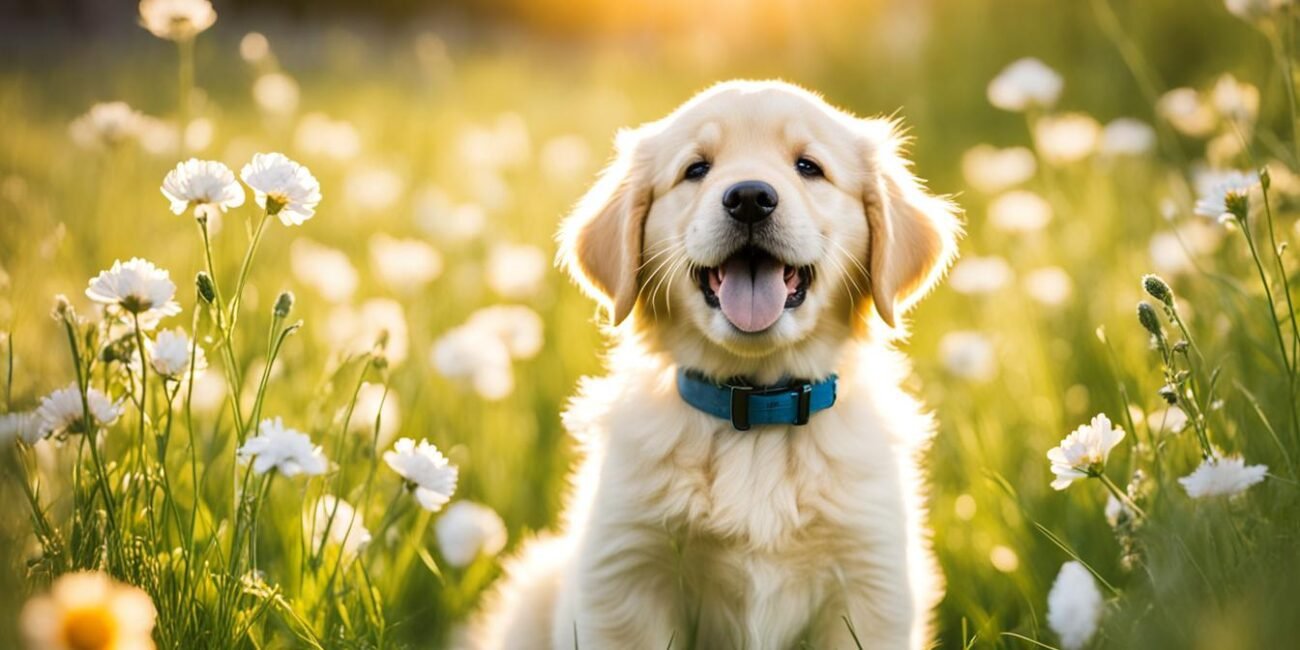


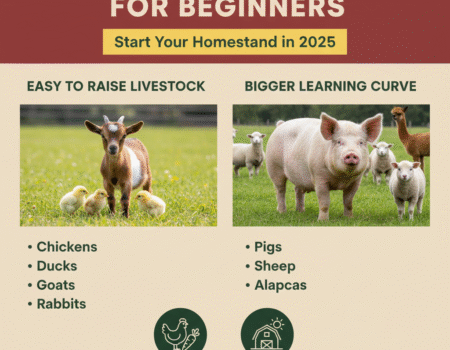
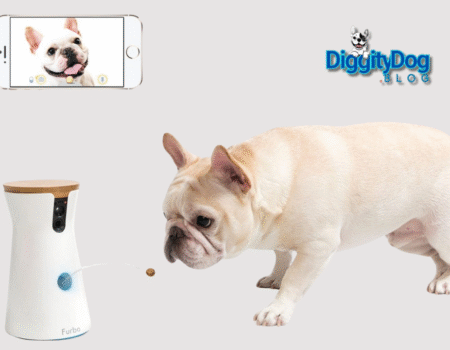
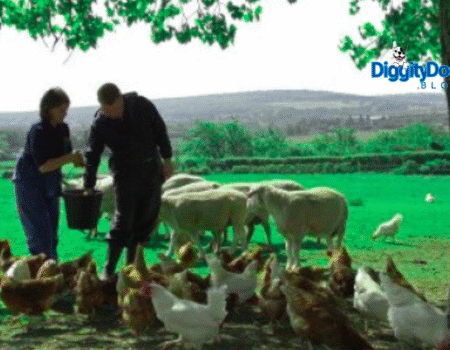
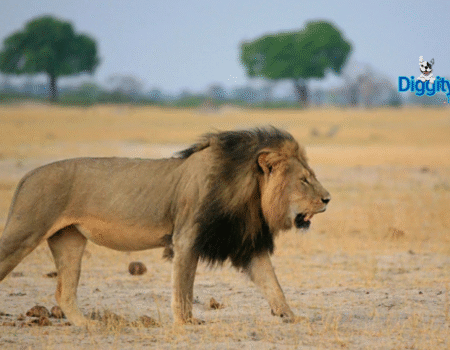
No Comment! Be the first one.